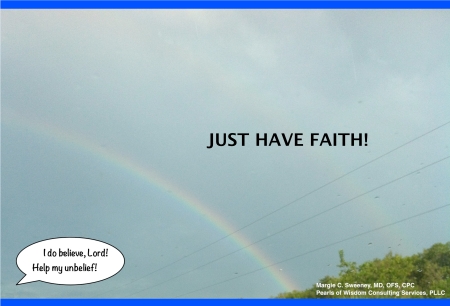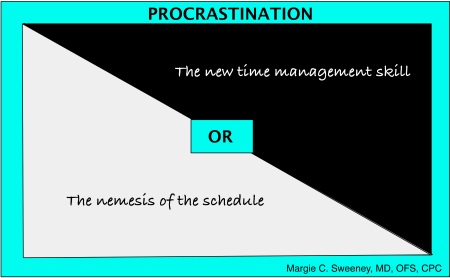How are suffering and joy connected? What is the purpose of suffering? How can God who is good allow us to suffer? How can we transcend suffering?
Our world view tends to dictate our response to suffering. No matter how we try to answer these questions one thing is for certain. We realize that suffering is a mystery. And this mystery has the power to transform us.
For persons of faith, we know that suffering can be turned into joy. Our greatest example is Jesus Christ who endured a horrific torture leading to death on a cross but was resurrected on the third day to bring salvation to the world. How can one not rejoice in that?
St. Francis of Assisi gave an example of perfect joy. Once he said to his companion: “I would not seem to myself to be a Friar Minor unless I were in the state I will describe to you.” And he said: “Suppose I, being a prelate among the brothers, should go to the chapter and preach and admonish the brothers, and at the end of this should be said against me: ‘An unlettered and contemptible person is not suitable for us; therefore we do not want you to rule over us, because you have no eloquence, you are simple and unlettered’ At length I am thrown out with reproaches and despised by all. I say to you, unless I listen to these words with the same face, with the same joy, with the same purpose of sanctity, I am in no way a Friar Minor.” And he added: “In an office is found an occasion for a fall; in praise, an occasion for complete destruction; in the humility of being a subject, an occasion for profit for the soul. Why then do we pay more attention to the dangers than to the profit, when we have time to gain profit?” (1)
St. Francis to Friar Leo: “And now, Friar Leo, hear the conclusion. Above and beyond all the graces and gifts of the Holy Spirit that Christ gives to His beloved, is the gift of overcoming self and of bearing willingly for the love of Christ, insults, revilings, and discomfort; for in all the other gifts of God we may not glory, seeing that they are not ours, but of God; therefore the Apostle saith: ‘What hast thou that is not of God and if thou hast received it of Him, wherefore dost thou glory as if thou hadst if of thyself?’ But in the cross of tribulation and affliction we may glory for this is ours, and therefore the Apostle saith: ‘I will not glory save in the Cross of Christ.’ To whom be ever honour and glory, world without end. Amen.” (2)
So one can say that the purpose of suffering is to bring us joy. One can also gain understanding, knowledge, wisdom, and hope through suffering. Suffering can increase virtues such as fortitude, humility, faith, hope, trust, etc. that would not be as easily attainable when one is not under a challenge and is in a state of complacency. In a perfect world there would be no need for suffering but since we don’t live in a perfect world, we enter into suffering to exit in a more perfect state.
St. Peter invites us to rejoice because our suffering will increase our faith. “In this you rejoice, although now for a little while you may have to suffer through various trials, so that the genuineness of your faith, more precious than gold that is perishable even though tested by fire, may prove to be for praise, glory, and honor at the revelation of Jesus Christ.” (1Pt 1:6-7 NAB)
Some ways to transcend suffering include “desert time” such as during the season of Lent. Depriving oneself of worldly pleasures, sacrificing and being of service to others, journeying with others in their sufferings, etc. — all of these help bring us to spiritual maturity and are of great benefit. Joining our sufferings to those of Christ on the Cross help us to see those sufferings in a new light with a renewed sense of purpose and hope.
St. Paul reflects on suffering and its purpose as follows: “Now I rejoice in my sufferings for your sake, and in my flesh I am filling up what is lacking in the afflictions of Christ on behalf of his body, which is the church, of which I am a minister in accordance with God’s stewardship given to me to bring to completion for you the word of God, the mystery hidden from ages and from generations past. But now it has been manifested to his holy ones, to whom God chose to make known the riches of the glory of this mystery among the Gentiles; it is Christ in you, the hope for glory.” (Col 1:24-27 NAB)
So even though suffering is a mystery, we know that there is much to be gained through it. So rejoice and be glad for your sufferings.
I pray that your Lenten desert time has brought you to a new level of understanding, knowledge, wisdom, hope, and joy!
————————————–
1. St. Francis of Assisi by Thomas of Celano, Franciscan Herald Press, Chicago 9, Illinois, 1963, p. 254.
2. The Little Flowers of St Francis, The “Fioretti”, edited by the Franciscan Father Zeffirino Lazzeri, Giulio Giannini & Son, Publishers, Florence, Italy, pp 44, 46.




 Posted by Pearls of Wisdom Consulting Services, PLLC
Posted by Pearls of Wisdom Consulting Services, PLLC 








